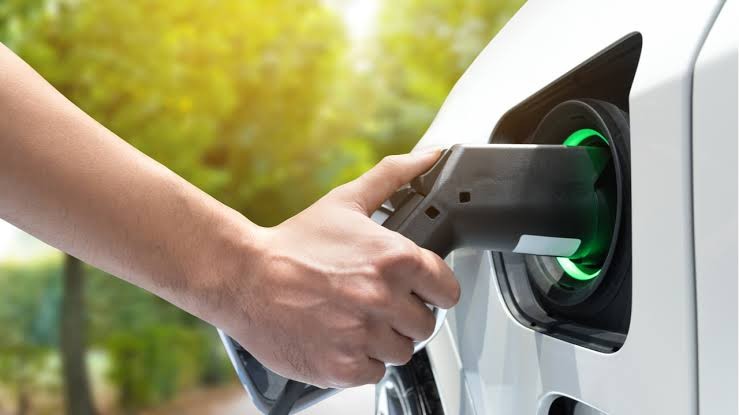We've Been Charging EV Batteries All Wrong. Stanford study reveals charging EV batteries to 80% extends lifespan by 20%. Tips for optimal charging and future advancements in EV charging. Get answers to frequently asked questions.
Electric vehicles (EVs) are gaining popularity due to their environmental benefits. However, concerns about battery longevity remain. A recent Stanford University study reveals that our charging practices have been incorrect, potentially reducing battery lifespan. By understanding the study's findings, we can optimize EV battery charging and extend their lifespan by up to 20%.
Charging EV Batteries: The Traditional Approach
Traditionally, EV batteries were charged to 100%. However, the Stanford study highlights that this practice is detrimental to battery health. Fully charging batteries accelerates degradation.
Optimal Charging Level for Long Battery Life
The study recommends charging EV batteries to 80% for maximum longevity without sacrificing range. This level ensures sufficient driving distance while promoting battery durability.
Tips for Maximizing EV Battery Lifespan
Follow these charging tips to enhance the lifespan of your EV battery:
- Charge your battery up to 80%.
- Avoid fully charging to 100%.
- Prevent the battery from reaching 0% charge.
- Keep the battery away from extreme temperature conditions.
- Utilize a slow charger whenever feasible.
The Future of EV Charging: Advancements on the Horizon
Exciting advancements are shaping the future of EV charging, with technologies aiming to enhance convenience and speed.
Solid-state batteries show promise with their improved efficiency and faster charging capabilities compared to traditional lithium-ion batteries.
Wireless charging is another groundbreaking technology under development, enabling EVs to charge without the need for physical connection, significantly enhancing convenience.
Conclusion: Charging EV Batteries the Right Way
The Stanford study demonstrates that our previous EV battery charging practices were flawed. By adopting the recommended charging tips, we can extend the lifespan of EV batteries, ensuring their longevity for years to come.
Additional Information about EV Charging
Consider the following factors when charging your EV:
- Charging speed depends on the charger type, with slower chargers requiring more time.
- Ambient temperature impacts charging speed, with higher temperatures slowing down and lower temperatures speeding up the process.
- Battery state affects charging time, with partially charged batteries requiring less time to reach 80% compared to completely depleted batteries.
The Future of EV Charging
As EV popularity continues to surge, the demand for charging infrastructure grows. Governments and businesses invest in expanding charging stations, while ongoing technological advancements aim to enhance charging speed and convenience.
With sustained investment and innovation, the future of EV charging appears bright. Improved accessibility, speed, and ease of charging will make EVs an increasingly attractive option, accelerating the transition towards a cleaner transportation future.
Frequently Asked Questions about EV Charging
Can fast charging damage EV batteries?
Fast charging, when used occasionally, is unlikely to cause significant damage to EV batteries. However, frequent and prolonged use of fast chargers may lead to increased battery degradation over time.
Should I charge my EV to 100% for long trips?
It is recommended to charge your EV to 100% for long trips to maximize your driving range. However, frequent charging to full capacity may lead to increased battery wear, so it's best to balance between long trips and regular charging to 80%.
Can I use any charger for my EV?
EVs typically come with specific charging connectors compatible with different charger types. It is essential to ensure that the charger you use is compatible with your vehicle to ensure safe and efficient charging.
Are there any precautions I should take during extreme weather conditions?
Yes, extreme temperatures can impact battery performance. During hot weather, try to park in shaded areas or use a sunshade to minimize heat exposure. In cold weather, pre-conditioning the cabin while the vehicle is plugged in can help optimize battery performance.
What are the benefits of wireless charging for EVs?
Wireless charging eliminates the need for physical connections, offering convenience and ease of use. It simplifies the charging process, reducing wear on charging connectors and potentially increasing charging efficiency.
Can I charge my EV at home using a regular power outlet?
Charging an EV using a regular power outlet is possible but not recommended. Regular outlets may not provide sufficient power to charge the vehicle efficiently. It is advisable to install a dedicated EV charging station at home for optimal charging speed and safety.
Note: The answers provided are general guidelines. Always refer to your vehicle's user manual and consult with professionals for specific recommendations related to your EV model.

Comments (0)
Please login to join the discussion
Be the first to comment on this article!
Share your thoughts and start the discussion